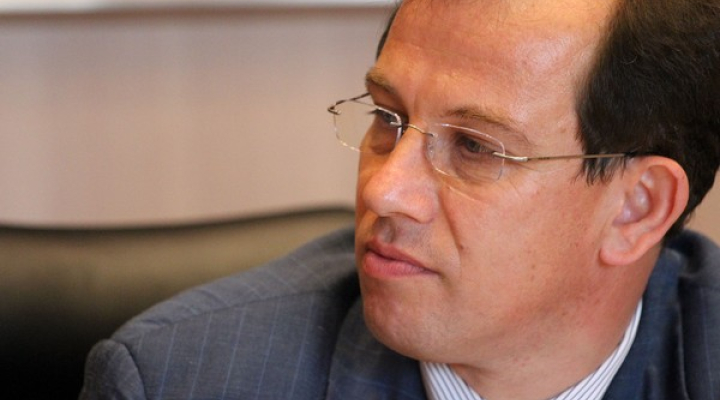Europe does not address the Roma issue properly – Summary of the Strasbourg plenary session of the EP
During the first plenary session of the European Parliament of October MEP Csaba Sógor intervened in several debates.
On Tuesday, 8 October, related to the negotiations on signing a bilateral investment treaty between the EU and China, the MEP insisted on the necessity to observe human rights and declared that the EU should tie investment deals to the satisfactory settlement of the situation in Tibet:
“The relationship with the People’s Republic of China is a very important one for the European Union, as bilateral investment agreements could ensure economic growth on both sides. At the same time, I am convinced that our Chinese partners can accept the fact that the European Union raises its voice everywhere in the world for the respect of human rights and that China cannot be exempt from this principle. We must voice our concern regarding the situation in Tibet at least as many times as we discuss the importance of trade relationships. We cannot disregard the issue of Tibet, especially when discussing mutual investment opportunities.”
In the afternoon of the same day Csaba Sógor took part in the debate entitled “Building the European Research Area by 2014 ”. In his speech, the Hungarian MEP from Transylvania called for more EU financial support, condemning at the same time minority discrimination issues that affect research, too:
”The finalisation of the European Research Area is one of the best examples of the value added brought by cooperation between member states. We cannot reach our targets without common action. Today, unfortunately, we already know that Europe fell behind in the research competition. In other parts of the world more emphasis is laid on research, and this is a dangerous tendency. I am convinced that beside the efforts of member states there is also a need for measures at the European level. The European facets of research are manifold and, as my colleagues have already pointed out in relation to the Europe 2020 strategy, they include issues such as payment differences between researchers, mobility, researchers from third countries, etc. Consequently, we cannot consider research an exclusive member state competence. There still are, however, states in which there is an anti-minority atmosphere and where some universities refuse to apply the law on education that grants minority language use rights – just imagine how difficult it is to do research in such conditions.”
On Wednesday, 9 October, following the declaration of the Council and of the European Commission in the matter, MEPs debated the situation of the Roma in the European Union. Csaba Sógor called for a greater implication of member states, noting the economic and labour market advantages of integrating the Roma community in the society:
”Today the Roma minority is in a unique situation in Europe: while as the losers of post-communist regime changes in Europe, they live in awful conditions, the European Union, despite its Roma Strategy, still doesn’t treat the issue properly. At the same time, it is disappointing to see that some member states link the Roma issue to postponing Romania’s and Bulgaria’s accession to the Schengen Area and question the right of free movement of the citizens in Europe.”
I think it is time to make a few statements: One: The problem of the Roma minority – although it is subjected to severe discrimination in several member states - is first of all a social one, consequently there is a need for social education and employment measures tied to well defined strategic objectives. Two: the general situation of Roma communities can only be improved significantly on the medium and long term; there are no magic remedies. Three: the responsibility is a shared one; it does not belong exclusively to Eastern Europe but rather to the European Union, which should make member states put in practice the Roma Strategy. In case Human Rights arguments are not enough for this to happen, please think of the benefits the inclusion of these people in the labour market would lead to in terms of increased taxes and, implicitly, diminished social expenditures.”
The alleged use by the CIA of member states for illegal prisoner transport and detention -discussed on Wednesday afternoon, - was qualified by Csaba Sógor as running counter to the EU’s human rights protection system. The MEP called for greater transparency in the matter:
„The essence of cooperation between secret service agencies is to run coordinated actions through the participation of several states for our security. I think nobody questions the fact that in the fight against terrorism there is need for such common actions. In the present case, however, on the territory of some member states there were practices that are fundamentally opposed to the human rights protection system we are so proud of. I’ve said it several times: if we do not take our own rules seriously, then how can we demand this in other parts of the world? This case is of a historical significance. Can it be that the violation of a series of international conventions on the territory of the European Union can remain without consequences? I consider that European citizens are entitled to greater transparency in this case.”











